I own my own home sewing business, and I’d love to find a few people like me with whom to talk. I work by myself from my kitchen counter, in a rural area. I do a bit of everything…home dec, boat canvas, bridal, new garments…you name it!
I’m looking for general discussion on both technical sewing and the small business end, and I’d love to email some of you when I have issues. I’ve found that while I ADORE Threads, and it has literally made my business a success in many ways, there are production issues that aren’t covered in the magazine. (The single most helpful thing I found, however, was an article on sewing without pins. It revolutionized my business, and close to doubled my income.)
We who sew for our bread and butter must compromise quality for production on so many issues (ie, one kind of thread on large cones, only 2 kinds of pins, only the most practical and durable notions). I strive for very high quality, but must often settle in the interest of making a living. The art is providing excellence, spending less and charging more, and I’d really love to pick the brains of fellow home business folks to improve this art.
Any interest? We might even inspire others to start their own businesses!

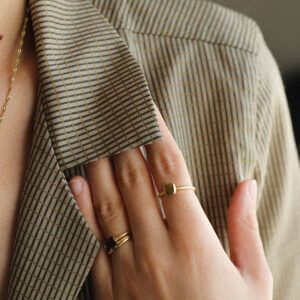
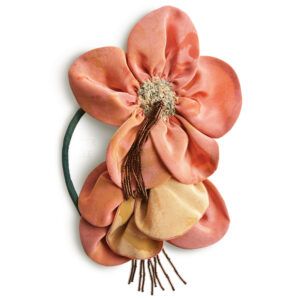
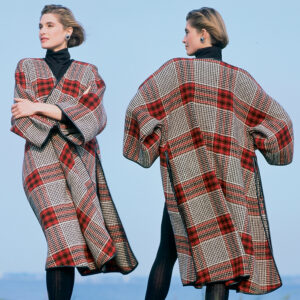
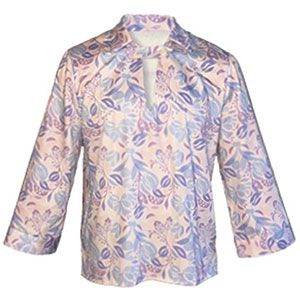
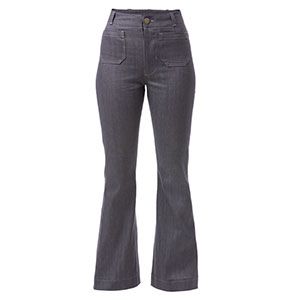
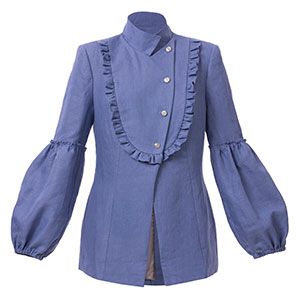
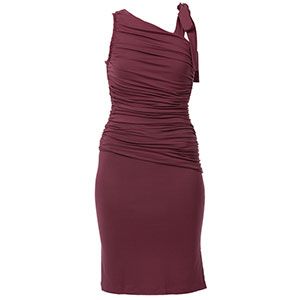
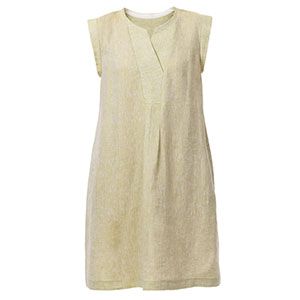
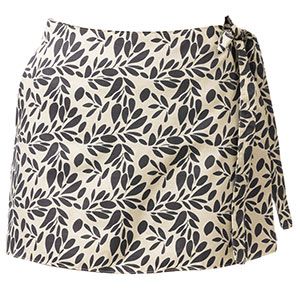
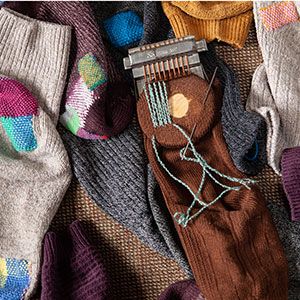
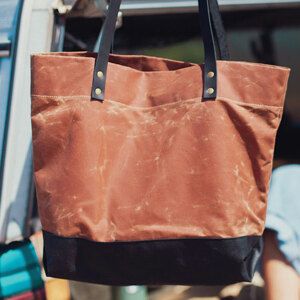
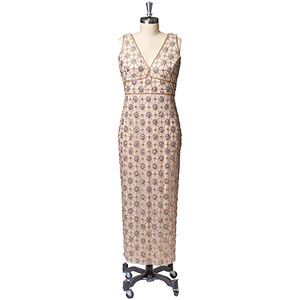
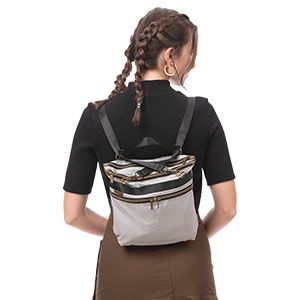
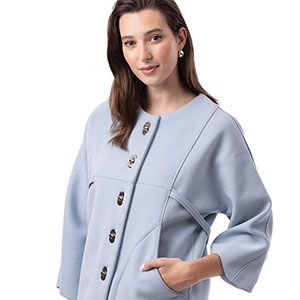
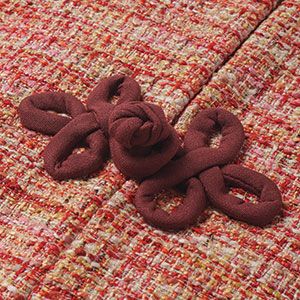








Replies
Here is my profile. Let's talk.
Sarahjane,
I'm not into the sewing business yet, but would really like to make heirloom baby clothes and heirloom blouses for ladies. I love the heriloom and smocking look. There aren't many heirloom shops in NE part of US yet, so this may be to my advanage. But then again, the weather isn't warm for that long of time for people to buy such light weight baby clothes. I'm tossing it around as an option for when I retire. But, now is my time to learn .
I saw that you make boat covers. Do you have a commercial machine to do this, or can you do this on a regular home machine? I am always afraid to use my machine for heavy material, fearing that it may burn the motor. We have a boat and my husband mentioned it to me that we need one. I reminded him that I am re-learning how to sew, plus I want to start on easy things.
If anyone has a good book on heirloom techniques and patterns, please suggest it to me. I do have most of Mary Lou Nalls books, which I just purchased this week. I really do like them.
Cher
Hi Cher,
Sewing is a great retirement business. Don't forget to charge for your work, though; you'll make better friends with local professionals if you aren't undercutting them! We have that problem in this area with quilters. They do it for fun and often don't even charge enough to cover materials...makes it tough for those of us trying to earn a living.
You asked about boat covers. There are a several good books on the market for making biminis, trailer and mooring covers...just about any canvas project you can think of. It's not difficult if you know how to sew and have some good math skills, but it is cumbersome, bulky, and heavy. I have done some on my home machine and it can be done, but it is rough on the machine. It pushes the motor pretty hard, but also the needle bar takes a beating. The walking foot on my Pfaff is NOT the same as the one on my commercial machine. Apples and oranges. The commercial machine holds on much better, and you can let the needle bar take the weight as you adjust the fabric. Can't do that on the Pfaff! I've switched to silk jackets after a canvas job and the machine just doesn't feel right until it's tuned up by a professional. Lubricating and cleaning well is never enough.
Check your local trader newspapers. Sometimes people buy a used machine cheap just to do a job and then sell it afterward. You can often find the same few machines making the rounds locally for years.
A local boat shop just bought a commercial machine for me (a Sailrite; it's a nice machine)so that he can have his customer's canvas work done locally. I will repay him over the next few years with a percentage of each job. This is a GREAT way to get a heavier machine if you are doing this for a living. And feel free to ask me any questions about how to build the covers.
~Sarah
Check out http://www.upholster.com for the books
Sarah,
Thanks for all of your input. I have to remember the fact about pricing, that is a good point to remember the local stores(except walmart).
My first love is heirloom sewing. I think I will love to see the dress, bonnet, etc. as they come closer to a finished product and more embellishments are added.
If I have to purchase another machine for a boat cover, I really don't think it will be worth it just to make one cover. So, maybe at an auction or garage sale some day. Boat covers are probably good money makers, but I want to see something "pretty" as I am sewing. Boat coves are just that, boat covers. When(and if) I start selling the baby clothes, I will still enjoy looking at them when I go to the store the next day. Plus, if they don't sell after a set period of time, there will be plenty of babies in the family to give to as gifts.
I'll let Rick know your opinion, and if he still wants me to make one when ours looses its body(our last one kept sinking in when it rained a lot), he can purchase the machine. Either way, I want to look at some of the books and I can become familiar with the different types of canvas, threads to use, etc. It's just like purchasing a machine, know what you are getting into.
Thanks again, and you probably will be getting some questions after I do some reading.
Cher
Sarahjane,
I am a former Home Ec teacher (with a MS degree and a move across state I could not find permanent work as a teacher in the 80's) who chose the clothing & textiles area for specialization. I have worked in alterations in a department store and ran the workroom for a leather cleaners, thus acquiring a ton of experience beyone what I learned in college. I now run an alterations and repair business out of my home. I limit my focus on my work to only alterations and repairs as I have found "sewing from scratch" requires too much of my time for fitting and customer contact. I have not advertised at all but have grown my business client by client. I also am able to provide alterations and repairs for a local police department and provide pickup and dropoff service. Once in a while I have made curtains or simple drapes or recovered cusions but have regretted taking the jobs. Though I have a very nice sewing room in my basement, I still do not have the table space for large layouts. Also, the alterations work comes in and goes out within one week's time for me. And if we have family obligations my customers are very considerate of my schedule.
I have a nephew who recently started a nautical canvas business. This was done after 20 years experience in automotive modifications like convertible tops. He chose to specialize only in boats and works out of his pole barn. He has power equipment designed to work on the heavy materials.
If you have the option (given the population of the area you are in) do specialize.
Hi Cher,
I think I would be bored specializing. For one thing, alterations are great quick cash, but I get tired of hemming pants. I love having lots of different projects going. This week I have a from-scratch Oscar De La Renta bridal gown, a boat cover repair, a dozen handwoven merino wool tops and vests to assemble from one of my local businesses, a set of ultrasuede boat cushions to make, and 2 dozen chevrons to put on the State Police summer uniforms. My life is never dull!
I live in a town with a population under 2000, and the next town over is 20 minutes away, so I have to do a little of everything in order to survive. I've gotten very fast at lots of things, and each thing I do teaches me something unexpected, improving my work in other areas. As for layout room, there is none! It's amazing what you can do with the kitchen counter when you have no choice. I suspect I'm very fortunate that in Downeast Maine, no one expects to see a professional, well equipped shop. Word of mouth is that I do very good work, and so no one questions the kitchen setup. (Maybe they think I have a shop out back in the woods, or something!) If I tried this in Connecticut where my sister lives, I'd be laughed out of the state.
It's wonderful to hear from other women who love sewing for a living. Thanks!
~Sarah
CONNIE I'M SORRY.
I called you Cher. Guess I should pay more attention!
I have been making and selling Judaica in fabric for the past 12 years or so. I have develped several subspecialties within this pretty small and specialized field...
I have made many pieces where i incorporate old family textiles into a new ritual object. i also do a fair amount of pieces incorporating phototransfer techniques.. I also make tallitot ( prayer shawls) for women. I have made some synagogue furnishings as well ( i would love to do more)
most of my work is custom work and involves working with brides or batmitzvah kids and their families.. or with people celebrating a major family event. I also make challa covers and matza covers .. some on spec that get sold primarily at judaica craft shows and others that are custom orders..
when I began my sewing skills were awfully limited (laughable) but I have learned a huge, huge amount, from threads magazine, from the folks on this list and on the creative machine list.. and most of all from making every possible error that is possible to make. as my skills have developd.. so has my work. But when I first began, each issue of threads would send me scurrying to try a new technique and trying to figure out how to incorporate the technique into my work.
Nearly all of my business comes to me via word of mouth. I have clients around the country...and even some in israel.. forthe most part the work has been gratifying.. I get to make use of my pretty serious jewish education along with my love for really wonderful fabric.
sarah in nyc
Hi SarahJane,
Just a note about your at home sewing business. I have had my sewing business
The Purple Button for many years. 15 of those years were in my uptown shop. Now that I am older I am tired of having to have those set hours and constant interruptions from the clients coming in and out. Now, I work from my home, by appointment only and take only who I chose to work with. Life is much less stressful.
One suggestion, get out of your kitchen as soon as you are able. Even if you have to have a wooden door or a sheet of plywood set up in a bedroom somewhere, kitchen counters and kitchens themselves are death to fabrics. I am fortunate to have a large sewing room, with a separate door to the outside of my home and a separate door from the rest of the inside of my home.
I used to work years ago for an Heirloom patterns designer, the first thing she insisted on was that I didn't work in my kitchen or smoke. I didn't either one. As we all know fabrics breath and the least cooking smell or whatever may be going on in our kitchens get into fabrics. We may not smell the ordors as we are used to them, but someone else will.
I am willing to help you any way I can, however, I won't take up any more space on this post. Feel free to email me if you like. Best success to you.
Elizabeth/Purple Button
[email protected]
Hello to All! Where I am new to the forum, I am not new to sewing. I have been sewing since before 6th grade and have started a home sewing business specializing in activewear for Gymnastics,Dance,Skate,Swim and more. Although my business is still in the building stages,the little free time I have I utilize for designing new items. My work can be seen at http://bimausa.home.comcast.net ,with email info at the site. I have done work for customers in various parts of the US and hope to expand from there. I would be happy to discuss my experiences and share information that I have learned. After all, information should be shared and not kept secret.
Sincerely Stretchsewer
Edited 9/3/2004 9:45 am ET by stretchsewer
Hello my name is MissCris. I was reading a post you did 7/04 - I know a long time ago, but I was impressed with what you said to the lady who was sewing out of her kitichen. You said, odors and such get into the fabric....etc. Well, the reason why I'm writing to you is to ask a small question that will have a large answer...my question is: how did you decide what to sew for your business? I am very interested in sewing and have sewn for a short time but I would like to expand and try my hand at making some income from that. So anything you could help me in figuring out how to figure out what to sew- would be appreciated???? I have a great machine, Bernina Artista 200e, one with endless possibilities.
Thank you for your time,
MissCris
Hi MissCris... I am nearly as late as you in responding, but I just returned to the forums this month after long illness, divorce, etc...
Anyway, as to the question you asked, I'd like to give you a brief answer, but this won't truly be brief...
I've been sewing for 35years, tho due to disabilities- not as often as I'd have liked in the past few years. I've done everything from creating garments for myself, my daughters when young, and my step- kids eon's ago, as well as home dec, craft and gift items. When PG w/ my oldest- now recently married- I wanted to have a little extra $$ to make her layette and nursery items. I took samples of my craft, holiday, home dec, clothing items to a few area fabric stores [which I frequented a LOT] & simply asked about their display items and those used in demonstrations and classes. After showing my work, I offered to work up a few samples for the following season. As for payment, I didn't want to show income [had a strange ex- a spendthrift], so I asked for equivalent fabric store credits [a REAL TREAT as far as I was concerned], with the understanding that the materials needed for the samples were to be provided to me. I also asked that my name and contact info be displayed on the item being displayed/ shown in the store. This in turn gave me a small client base.
Basically, I found over the years, from having done samples, to making layettes for very wealthy women's baby-to-be, to designing quilts, holiday crafts at bazaars, and garment design, tailoring... you MUST focus on a single type of sewing at any given time.
In other words, when contracting for clothing items, all I sewed was clothes. When doing alterations, I stayed w/ that. In my serious quilting days, I designed and donated every other quilt to a local hospital peds unit for kids awaiting bone marrow/ organ TX, when doing home dec, I ventured into seat cushions and finally upholstery... but, I stayed w/ pillows, chair pads, table and window dressings; and when drafting and drawing out wedding gowns, this is all I do.
I'm only telling you this at length to help you out a bit. I've found over the years that the women who are successful at and happy sewing for profit [or non- profit, for that matter], and wise enough to FOCUS ON ONE AREA OF SEWING. So ONE PRIORITY IS TO NARROW YOUR SEWING TO A SINGLE AREA.
My suggestion to you: since you state that you have some sewing experience, I would guess you may be somewhere past a novice, but not quite intermediate. If you don't know what "level" your skils are, this is something you must define so as NOT to get yourself into trouble. Often in the excitement of sewing for others, women take on projects exceeding their own skill level and end up in difficult predictaments w/ clients, time constraints and projects. Defining your skills can be as easy as using an online sewing dictionary and discovering just which terms with which you may be or not be familiar.
Don't confuse the elaborate and creative measures of your machine with your skills. Many of us never use certain stitches at all. SO ANOTHER PRIORITY after you DEFINE YOUR SEWING SKILL LEVEL [THIS IS ACTUALLY FIRST OVER NARROWING YOUR SEWING], is to understand the limits of your equipment. ANOTHER PRIORITY IS TO INVENTORY YOUR EQUIPMENT AND MACHINE CAPACITY. The most elaborate machines have limits too; A neighbor bought his married daughter an embroidery machine. She does fine embroidery on RTW and her kids' clothes, but neither she nor her machine can SEW... her machine is an embroidery- only unit.
Since you noted multiple stitches on your's, I'd recommend what I have to everyone to whom I've taight sewing: MAKE A STITCH BOOK FROM FABRIC. [If you need help on this, email me or ask... I used to teach.] With every machine I've ever owned or used, I've made certain to make a stitch book. This is a godsend to me, as are some other of my tools which I'd salvage before a husband [a divorce joke, sorry:)]. Seriously, taking the time to experient with every single stitch available on your machine is critical to sewing for others and helpful for your own personal projects. You don't want to need to take time to learn your machine's capabilities AFTER having work from another person...
Along with the STITCH BOOK, find a means of keeping what I call "Tech-Specs". I have a 7" deep 3-ring notebook, alphabetically holding sewing techniques... You can find many sewing tech-specs online thanks to the WWW. In addition to your TECH-SPECS, keep either a notepad, file or INDEX CARD FILE [my personal preference] near your machine. RECORD YOUR STITCH COMBINATIONS: which foot, machine settings, needle, thread type, fiber, and stitch is combined for a certain outcome. [There are excellent resources all over for stitch combinations. Email me or ask on the forum if needing REF.] Basically, MissCris, I'm a "presser foot junkie. I have 3 plastic boxes of pressor feet, each labeled and kept in a compartment, and an accompanying file which holds COMBINATIONS and FOOT information from manufacturers and experts. Obviously, this rerquires you to keep on hand plenty of varying needles, different weight threads, and test fabrics.
What you decide to sew may be decided by a combination of the above factors, plus your available TIME and SPACE CONSIDERATIONS. Do you have open cutting & pressing areas that can be kept up at all times in a particular area? Whether you do or not decides the time that you really have to devote to projects. Are your machines set up in a specified sewing area or do you need to remove your things from the kitchen table so your family can dine at night?
Also, do you work outside your home? Do you have small kids or other limitations which will interfere with your sewing? Many women sew at home with small kids, but I'd not recommend that you draft slopers and create muslins if in such situations.
Finally, do you have GOOD PRINT [BOOKS] SEWING RESOURCES? Obviously Threads- Taunton books and online articles is one such venue. If you're a less experienced sewer, you may want to subscribe to Sew News Magazine since it's a bit less intricate on projects. Threads, Burda, Vogue magazines are excellent for adding to your TECH-SPECS tho each is on a more couture level, presuming you know basics on sewing. You should also have READY PRINT SEWING REFERENCES: books on techniques, a book on basic sewing skills, one on general machine work... etc... [Ask for recommendations here at Threads Forums.]
Finally, taking inso account [1] YOUR SEWING SKILL LEVEL, [2] NARROWING THE TYPE OF SEWING YOU WILL DO IN THE BEGINNING, [3] INVENTORYING YOUR EQUIPMENT- with a STITCH BOOK, your own means of maintaining TECH-SPECS for easy refernece, [3] TAKING INTO ACCOUNT SPACE AND TIME FACTORS, and [4] MAINTAINING A HOME SEWING REFERENCE LIBRARY.... you can solicit one source to do work for. Personally, unless you're an experienced advanced seamstress, I'd recommend that you consider doing window & table dressings, & pillows... HOME DEC may not be your chosen area of interest in the beginning, but it's less demanding sewing, requires basic skills and mostly straight and zig-zag stitching on cotton- woven fibre. Standard measurement tables and patterns can be used. All of these things are favorable for beginning contract sewing as opposed to being commissioned to design a prom dress for your neightbor's daughter. You probably know the reason why that's true...
FIT IS CRITICAL and a component that requires some intermediate to advanced sewing skills. If you disagree, draft a sloper and whip up a muslin [on gingham]. Even if taking incredibly perfect measurements, you'll find yourself ripping out & moving seams. And the single step that you fail to press before contining on with a sewing project can destroy the outcome. Now imagine that your gungham is silk dupioni and embellished chiffon costing $300.00 for your neightbor's daughter's prom dress... I'm not trying to intimidate you MissCris, but rather hoping to relay that the K.I.S.S. theory applies to entry contract sewing too.
Finally, no matter what type of sewing you do from home for profit, CONTINUE TO LEARN AS MUCH AS YOU CAN... Go to the sewing expo's annually taking semninars; stop at fabric stores on demo days to learn a new technique; consider a community college sewing class or take an online sewing class with a planned project goal... CONTINUE learning and EXPERIMENTING and you will eventually discover new avenues for your sewing and work as a seamstress.
Good Luck MissChis. I hope I was a wee bit helpful. Realize that NO ONE BUT YOU CAN DECIDE ON THE TYPE OF SEWING YOU'LL CONTRACT IN, but you need to FACTOR IN ALL OF THE CONSIDERATIONS TOUCHED ON HERE, AT MINIMUM.
Take care and Stay well, loudezynz [email protected]
I agree with everything said in the previous message. The only thing I would add (when I was thinking about the $300 fabric and prom dress) is that it is OKAY to turn down work. This seems crazy when you're trying to start out, you figure that you can tackle it, and maybe you could if you had lots of time, reference material, make a couple of muslins then take a deep breath and put scissors to fabric. You don't need this headache early in your career and it could ruin your reputation. There are enough people out there that need basic clothing, that fits well - FITS WELL that you won't run into prom dresses with disaster potential just yet. I sew for two groups of clientele: The tall and large and figure skaters. I also sew for tall and large figure skaters. (ha!) I do not sew for average sized people because I can't compete with store bought, and I don't do dancewear, although it's so close to figure skate wear because, well just because I don't like the, oh, well, the sluttyness of some of the designs requested. The two groups of clientele compliment each other because skating is seasonal and I can work my other clients around them. I have 5 regular women wardrobe clients including one man. I have about a dozen skaters (including that man). That's plenty of work for me. I turned down three skaters this week because I simply am at my max right now. In the old days, I would have taken on the work and worked through the night going to my day job in the morning, but if they really want a dress, they'll be back soon enough. I can't emphasize fit enough. That's really my skill. I'm not the best pattern drafter, but I'm a good fitter and know what looks good on people.
I am so excited! I am also planning to start my own home sewing business. I am getting advice from a member of the Chamber of Commerce on how to get a business started. As far as the actual sewing goes I'm on my own.
I have been sewing since I was ten but the only professional training I had was in home economics. I love your reply to MissCris. Your idea of a stitch book is awesome. I have a Viking Freesia 425 and since I bought it four years ago I still do not know all that it can do.
I have done many different jobs in my life so far, but crafts, sewing, and just plain creating makes my soul sing.
I am looking forward to making that stitch book as soon as I can.
Thank you for your information. The best of luck MissCris!
Hi All,
I just resigned from a position as a fulltime 1st and production patternmaker, grader, drafting on the table and using Gerber Tech. CAD and TUCATECH CAD .
I have been designing, patternmaking, FITTING, and of course sewing ..most of my life. To create is my passion. I also do quilts and fiberart.
My point is..I am jumping into my own home business soon. I have taken some business classes as well, the last few years to be ready for this venture..
I have learned some things I didn't know just reading this discussion.
I am excited to read what you all have to say..
I have found that a lot of sewers aren't always able to make patterns.
That WAS my DAYjob for 20 yrs, doing what other designers wanted. I have decided I am going to take the plunge and do it for myself..I have a 10000 Ideas and designs in my head and on paper , and I am very good at fitting , I did that alot too.
So if any of you can help me get going here, I will be so happy.
And yes, I hope I can share my 20 yrs of patternmaking skills with anyone out there.
Please ask. I know homesewing(since I was young) and much industrial info.
[email protected]
Happy holidays.It sounds as if you have "all the skills" so many of us aspire to. I understand with most businesses that marketing is almost more important than the creativity. Let us know how it goes, if you have the time....Good luck.
ixs,
I guess I do have the skills, and the passion, I did learn quite a lot about the business side, yes marketing is the biggy, of course customer service is up there too.
It might be about 4 to 6 months but I will keep in touch,
and if I don't seem to be online much it is because I'm not, but eventually I will reply or add my 2 cents to a discussion.
thanks
Again, good luck. ixs
Hi, I just found this chat and was wondering how everyone was doing...postings are from 2004. I've had a homebased sewing business for 15 years. Mostly bridal and alterataions, some home dec and occasiounally a custom gown. Would enjoy getting to know some others who have issues, suggestions and ideas.
I'm currently growing my business to teaching. I'm teaching in some of the schools in after school programs and teaching privately in my studio.
You have the best experience, the beginning would be to put it in a plan. Where would you like to accomplish? Having twenty years knowledge of pattern drafting is awesome. Will you be developing some software, or know where to get a hold of some?
I wish you the best on your venture.
I'd love to hear any of your secrets for making a custom bodice pattern. I have one for pants but not for a bodice.
Love sewing!
KT
MisCris
Best of luck starting a sewing business. It can be daunting but if that is what you want to do--do it. I agree with all that has been said here. For anyone in (or thinking about) a sewing business, I suggest that you join the Professional Association of Custom Clothiers. PACC is a non-profit association of men (a few) and women (a lot) who sew for profit. Some do it full time from their homes; some have other jobs and sew in their spare time. Some do nothing but alterations. Some only do bridal work. Some do home decor---the list goes on. Threads magazine is a PACC sponsor.
It is a wonderful way to learn from those who have been there before. Members gain access to the PACC discussion list which is like a graduate course in sewing techniques almost every day!---go to http://www.paccprofessionals.org for more information or e-mail me off line at mjorymer@comcast net and I will tell you more!
Marijo Rymer, VP Public Relations, PACC
I think one consideration that hasn't been mentioned is money. How do you price your garments and time. Remember, a business should make a profit. How do you compete with the really cheap stores? I know I took a small business course that clarified doing business. That was helpful.
You can't compete with the cheap stores and you shouldn't even bother to try. The advantage of a custom handmade garment is fit, quality and workmanship and the satisfaction and pleasure of knowing the person that created it for you. People who compare a handmade custom garment to one that they can "buy in the store for cheaper" don't have an appreciation for this kind of work and shouldn't be the type of client that you market yourself to anyway.
Of course. But I would think part of the business would be to educate one's customers to that fact that a custom seamstress might not and maybe shouldn't be competitive with the stores. But not everyone will "get" it. I used to say that people couldn't afford me when I was approached to sew for someone else. I knew that because I wasn't a fast sewer and wasn't very interested in sewing for others.
Hello to all threads readers! This is a very interesting topic for me at the moment. I am a fashion design graduate with experience in boat work and upholstery. I have been making slipcovers as a primary business for almost two years now. I have recently received a contract to write a "how to" slipcover book, and it is my intention that it will be thorough enough so that an able sewer and fitter could start a business. I would love feedback and project suggestions. This book is due in print in 07. You can visit my website http://www.tailoredslipcovers.com (must be typed in the adress bar- not googled) and email via the contact button.
thank you
sophia sevo
This post is archived.